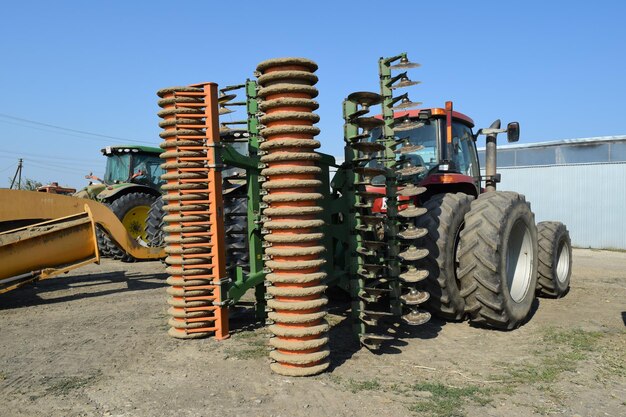Good agricultural infrastructure is the foundation of successful farming. For South African farmers, investing in the right tools and equipment can increase productivity, reduce costs, and improve the quality of produce. Proper infrastructure not only supports daily farming operations but also ensures long-term sustainability and competitiveness in the agricultural sector.
Efficient Land Preparation
Land preparation is the first step in farming and requires reliable equipment to achieve the desired results. Farmers need plows, disc harrows, and rotavators to prepare the soil for planting. These tools ensure proper aeration, weed control, and nutrient incorporation, creating an ideal environment for crop growth.
Irrigation Systems for Water Management
Water is a critical resource for agriculture, especially in drought-prone regions of South Africa. Installing efficient irrigation systems like drip or sprinkler irrigation helps conserve water while delivering it directly to the plants’ root zones. These systems reduce water wastage and ensure consistent moisture for crops.
Storage and Handling Infrastructure
Post-harvest losses are a significant challenge for farmers. Proper storage facilities, such as silos, cold storage units, and warehouses, preserve the quality of crops. Tools like conveyors, grading machines, and packaging equipment help streamline the handling process, ensuring that produce reaches the market in top condition.
Mechanized Farming Equipment
Modern farming benefits greatly from mechanization. Tractors, combine harvesters, and seed drills save time and labor while improving efficiency. These machines are particularly valuable for large-scale operations, allowing farmers to cover more land in less time.
Pest and Weed Management Tools
Pests and weeds can severely impact yields if not managed effectively. Tools like backpack sprayers, weeders, and hoes are essential for pest and weed control. For large-scale farms, mechanized sprayers and herbicide applicators offer precision and efficiency.
Greenhouses and Shade Nets
Controlled environments like greenhouses and shade nets are vital for high-value crops. They protect plants from extreme weather, pests, and diseases while allowing farmers to regulate temperature, humidity, and light. These structures are especially useful for cultivating flowers, vegetables, and herbs.
Advanced Technology and Monitoring Systems
Technology has revolutionized agriculture by enabling precision farming. Soil moisture sensors, drones, and weather monitoring devices help farmers make data-driven decisions. Mobile apps and software systems can track crop health, irrigation schedules, and market trends, giving farmers a competitive edge.
Transportation and Logistics
Efficient transportation is crucial for moving produce from farms to markets or processing facilities. Reliable vehicles like trucks, trailers, and refrigerated vans are essential for preserving crop quality during transit. Investing in proper logistics infrastructure minimizes delays and ensures timely delivery.
Labor and Safety Equipment
Farming involves physical labor, so providing workers with appropriate tools and safety gear is important. Hand tools like shovels, rakes, and pruning shears are indispensable for smaller tasks. Protective clothing, gloves, and boots safeguard workers from injuries and harsh environmental conditions.
Sustainable Energy Solutions
Adopting renewable energy sources like solar panels or biogas systems can significantly reduce operational costs. Solar-powered water pumps and lighting systems are particularly beneficial in remote areas with limited access to electricity.
Good agricultural infrastructure is the backbone of efficient and profitable farming. By investing in quality tools and equipment, South African farmers can improve productivity, reduce losses, and achieve sustainability. With the right infrastructure in place, farmers can meet growing market demands, adapt to challenges, and secure the future of their agricultural businesses.
Join 'Farmers Mag' WhatsApp Channel
Get the latest Farming news and tips delivered straight to your WhatsApp
CLICK HERE TO JOIN






